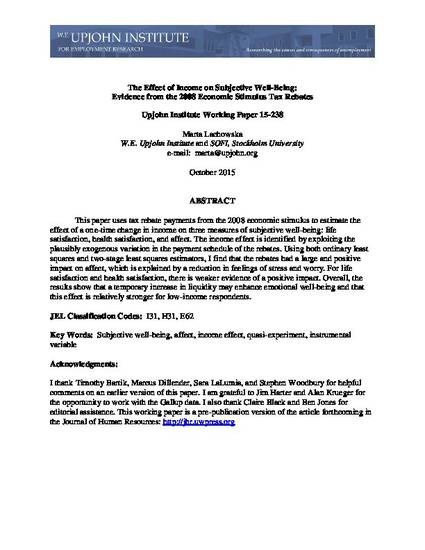
This paper uses tax rebate payments from the 2008 economic stimulus to estimate the effect of a one-time change in income on three measures of subjective well-being: life satisfaction, health satisfaction, and affect. The income effect is identified by exploiting the plausibly exogenous variation in the payment schedule of the rebates. Using both ordinary least squares and two-stage least squares estimators, I find that the rebates had a large and positive impact on affect, which is explained by a reduction in feelings of stress and worry. For life satisfaction and health satisfaction, there is weaker evidence of a positive impact. Overall, the results show that a temporary increase in liquidity may enhance emotional well-being and that this effect is relatively stronger for low-income respondents.
